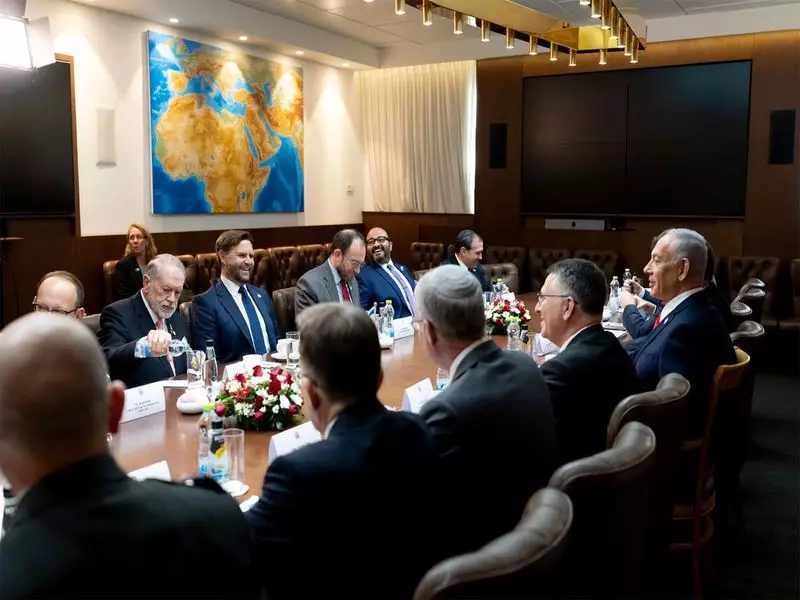
In a major diplomatic development, United States Vice President JD Vance has engaged in critical discussions with top Israeli leaders regarding the ongoing Gaza situation and potential peace deal. The high-level talks mark one of Vance's most significant international engagements since taking office.
High-Stakes Diplomatic Engagement
The newly appointed US Vice President held separate meetings with both Israeli Prime Minister Benjamin Netanyahu and President Isaac Herzog, focusing primarily on the proposed Gaza ceasefire agreement and hostage release negotiations. These discussions come at a crucial juncture in the ongoing conflict that has drawn international concern.
Key Discussion Points
According to sources familiar with the negotiations, the talks covered several critical aspects:
- Implementation roadmap for the proposed ceasefire agreement
- Mechanisms for secure hostage release and prisoner exchange
- Humanitarian aid distribution in Gaza
- Long-term security arrangements for the region
- Post-conflict reconstruction plans
Regional Stability at Forefront
The meetings underscore the United States' continued commitment to mediating peace in the volatile region. Vice President Vance's direct involvement signals the White House's prioritization of resolving the Gaza conflict, which has seen numerous diplomatic efforts over recent months.
Diplomatic sources indicate that both Israeli leaders presented their perspectives on the current deal framework, while Vance reiterated the US position on achieving sustainable peace and addressing humanitarian concerns.
International Implications
This diplomatic engagement occurs amid growing international pressure for a resolution to the conflict. The involvement of the US Vice President at this level demonstrates the administration's proactive approach to one of the world's most challenging geopolitical situations.
Observers note that Vance's background in foreign policy and his relationship with former President Trump add an interesting dimension to these negotiations, potentially influencing the dynamics of US-Israel relations moving forward.
The outcomes of these talks are expected to shape the next phase of negotiations and could determine the trajectory of the conflict resolution process in the coming weeks.





